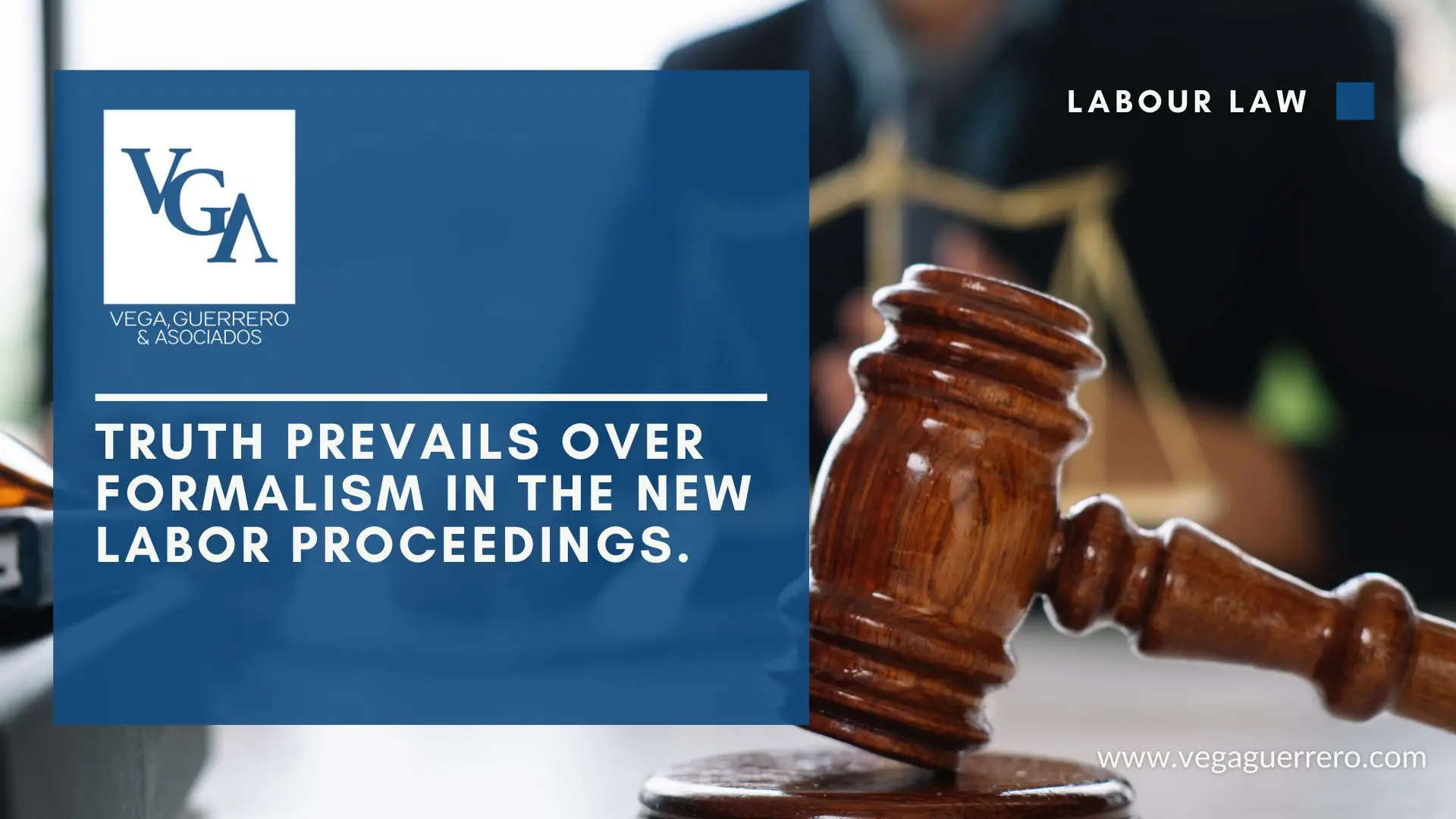With the application of the new labor procedures, different criteria have been generated with respect to the presentation of evidence, which to a certain extent has favored obtaining the truth in procedures based on unfounded actions.
One of the evidence that has been most favored is the confessional evidence since it is now made through an open questionnaire that must be answered by the absolving party.
The Supreme Court of Justice of the Nation, through Thesis II.3o.T.1 L (11a.), issued a criterion on the presentation of confessional evidence in the labor sphere, which has the following premise: “CONFESSIONAL EVIDENCE IN LABOR LAWSUITS. IN ACCORDANCE WITH THE PRINCIPLE OF THE PRIMACY OF REALITY, THE JUDGE IS EMPOWERED TO INTERROGATE THE ABSOLVING PARTY TO DETERMINE THE VERISIMILITUDE OF HIS STATEMENT AND ISSUE A DECISION IN ACCORDANCE WITH THE FACTS AND NOT BASED ON PROCEDURAL FORMALISMS”.
According to this criterion, the PRINCIPLE OF PRIMACY OF REALITY grants the Judge the power to interrogate the absolver during the labor trial, to determine the credibility of his statement, and issue a resolution based on the actual facts and not on procedural formalisms.
This pronouncement arises in the context of a specific case where the plaintiff, in absolving positions in the confessional evidence, incurred in contradictions regarding the facts of the dismissal described in its claim.
The judge, in evaluating the evidence, asked additional questions to the absolving party and concluded that the contradictions led to the non-existence of the dismissal.
The Collegiate Circuit Court justifies this interpretation under Article 790, section II, of the Federal Labor Law, which allows the judge to ask pertinent questions during the confessional evidence.
This criterion is important due to the fact that the procedural burdens in the trial are practically total for the employer, in addition to the fact that it is a reality that more and more workers abuse this right to alter the claim of actions that do not correspond to them, such as when they claim unjustified dismissals without them being true so that with this power of the judges it will be possible to obtain answers in accordance with realities, and even avoid convictions against them.




